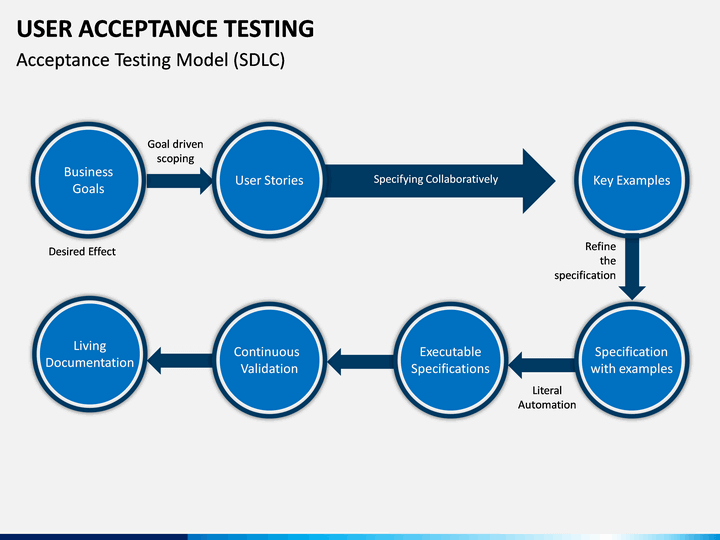click now is some sort of critical phase in the software development lifecycle, ensuring of which something meets the particular required specifications plus functions correctly just before going live. Along with advancements in unnatural intelligence (AI), there’s growing interest within leveraging AI for automating acceptance tests to boost efficiency in addition to accuracy. However, the particular implementation of AI with this domain is fraught with constraints and challenges, mainly related to reliability, have faith in, along with the necessity for human oversight. This specific article delves into these issues, checking out their implications plus potential solutions.
just one. Reliability Concerns in AI for Acceptance Testing
One associated with the foremost challenges in utilizing AJAI for acceptance testing is ensuring the particular reliability in the AI models and equipment used. Reliability throughout this context refers to the consistent performance involving AI in effectively identifying defects, making sure compliance with specifications, and not bringing out new errors.
Data Quality and Accessibility
AI models demand large numbers of superior quality data to perform effectively. On many occasions, historical test data may well be incomplete, sporadic, or insufficient. Negative data quality can lead to unreliable AI types that produce inaccurate test results, probably allowing defects to slide through the cracks.
Model Generalization
AJAI models trained about specific datasets might find it difficult to generalize across different projects or perhaps environments. This lack of generalization signifies that AI equipment might perform nicely in a context yet are not able to detect concerns within, limiting their own reliability across varied acceptance testing scenarios.
2. Trust Issues in AI with regard to Acceptance Testing
Building trust in AI techniques is also a significant challenge. Stakeholders, including programmers, testers, and administration, must have confidence that will AI-driven acceptance assessment will produce trustworthy and valid outcomes.
Explainability and Transparency
AI models, particularly those based upon deep learning, often operate as “black boxes, ” making it difficult to be able to learn how they get there at certain decisions. This lack of transparency can go trust, as stakeholders are hesitant in order to rely on systems these people do not completely comprehend. Ensuring AJE explainability is crucial for fostering have confidence in and acceptance.
Tendency and Fairness
AJE models can inadvertently learn and perpetuate biases present in training data. Throughout the context associated with acceptance testing, prejudiced AI could direct to unfair screening practices, like missing certain sorts of flaws more than some others. Addressing bias and even ensuring fairness throughout AI models is vital for maintaining have faith in and integrity inside the testing process.
several. The Need intended for Human Oversight throughout AI for Acceptance Testing
Inspite of the potential benefits of AJE, human oversight remains to be indispensable in the particular acceptance testing process. AI should become viewed as a device to augment human being capabilities rather than replace them.
Structure Scenarios and In-text Understanding
AI designs excel at style recognition and information processing but generally lack the contextual understanding and refined judgment that human testers bring. Complex scenarios, particularly those involving user expertise and business reasoning, may require human being intervention to guarantee comprehensive testing.
Constant Learning and Adaptation
AI models require to continuously study and adapt to be able to new data plus changing requirements. Individual oversight is crucial in this iterative process to provide feedback, correct errors, and guide the AI in improving its performance. This kind of collaborative approach guarantees that AI methods remain relevant in addition to effective over time.
Mitigating the Difficulties
To cope with these limits and challenges, a number of strategies can become employed:
Improving Data Quality
Investing inside high-quality, diverse, and even comprehensive datasets will be essential. Data enhancement techniques and synthetic data generation could help bridge breaks in training information, enhancing the trustworthiness of AI versions.
Enhancing Explainability
Creating techniques for AI explainability, such while model interpretability tools and visualizations, can help stakeholders recognize AI decision-making techniques. This transparency encourages trust and facilitates the identification and a static correction of biases.
Putting into action Robust Validation Systems
Rigorous validation systems, including cross-validation plus independent testing, will help ensure that AI models generalize very well across different cases. Regular audits and even reviews of AJAI systems can additional grow their reliability.
Fostering a Collaborative Human-AI Method
Encouraging a collaborative approach in which AI assists human being testers can improve the strengths regarding both. Human oversight helps to ensure that AI types remain aligned with business goals plus user expectations, although AI can handle repetitive and data-intensive tasks.
Bottom line
When AI holds important promise for reforming acceptance testing by simply increasing efficiency and accuracy, it is not with no its challenges. Stability issues, trust problems, and the requirement of human oversight happen to be key hurdles that must be addressed to completely harness the prospective of AI within this field. By enhancing data quality, improving explainability, implementing robust validation mechanisms, and even fostering a collaborative human-AI approach, these challenges can always be mitigated, paving typically the way for further powerful and trustworthy AI-driven acceptance testing options.

